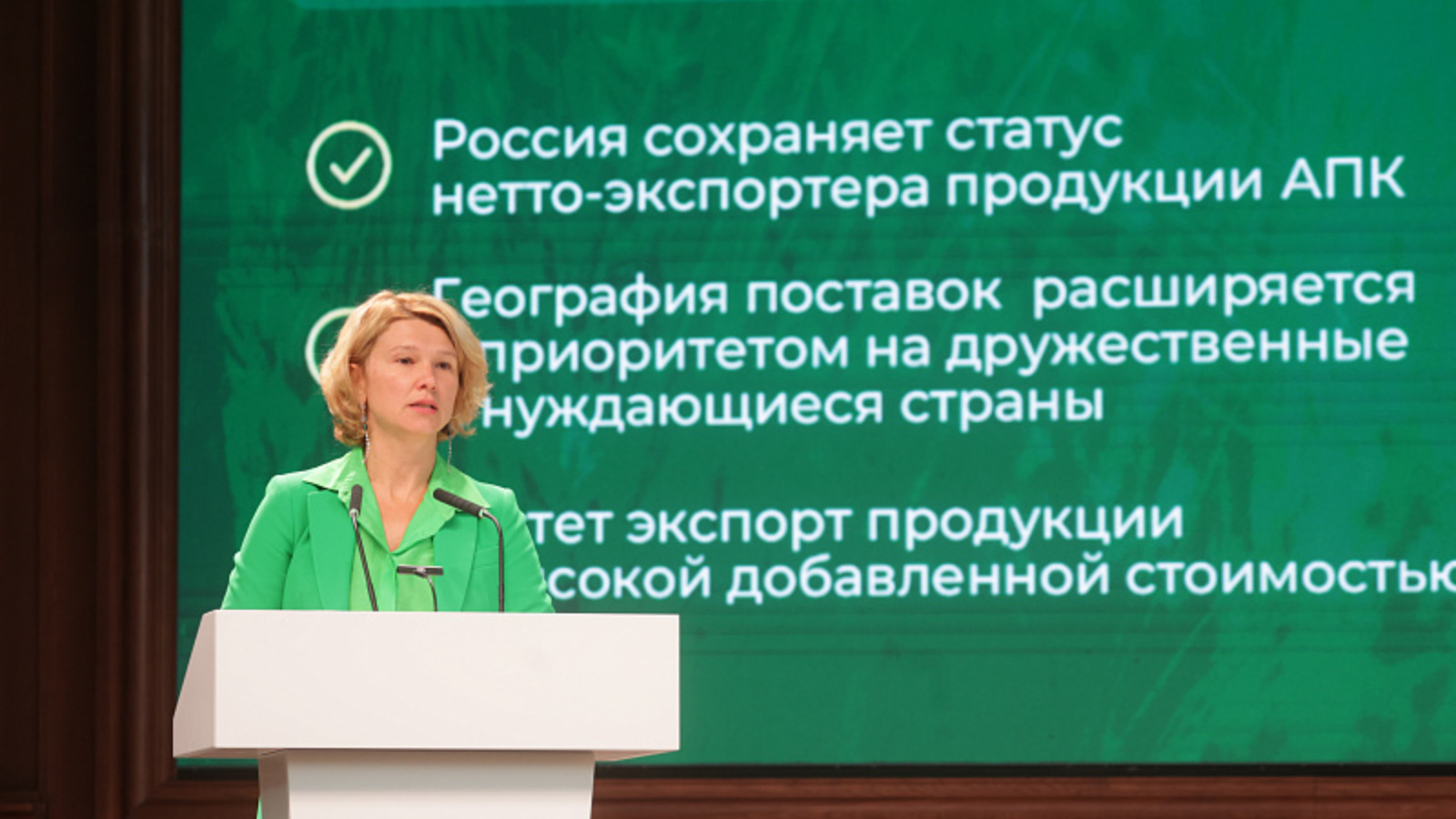The results and priorities of the development of the Russian agro-industrial complex were discussed at the meeting of the Board of the Ministry of Agriculture

Today, the final meeting of the Board of the Ministry of Agriculture of Russia was held, at which the results of the work of the agro-industrial complex and strategic objectives for the future were discussed. The event was attended by Deputy Prime Minister of the Russian Federation Dmitry Patrushev, Minister of Agriculture Oksana Lut, Deputy Prime Minister of the Republic of Tatarstan - Minister of Agriculture and Food of the Republic of Tatarstan Marat Zyabbarov, heads of constituent entities, representatives of both chambers of the Federal Assembly, federal authorities and supervisory agencies, industry and public organizations, the scientific community and business.
A video message was sent to the participants of the meeting by Chairman of the Government of the Russian Federation Mikhail Mishustin. The Prime Minister expressed gratitude to everyone who ensures the successful development of the agro-industrial complex. "The government highly appreciates the steps taken by farmers to strengthen the country's food security so that our citizens can continue to buy high-quality and affordable food products made in Russia," the head of government emphasized.
Dmitry Patrushev recalled that the agro-industrial complex ended last year with positive indicators in all sub-sectors. He particularly noted the successes in crop production, livestock farming, the fisheries complex, as well as in certain areas of the food and processing industries. The domestic market is fully supplied with all the necessary products. The Russian agro-industrial complex remains the driver of our country's economy, and the Government will definitely continue to support the industry, the Deputy Prime Minister promised, expressing confidence that all the tasks will be solved through joint efforts.
Speaking about the dynamics of the agro-industrial complex development in 2024, Oksana Lut reported that growth is maintained in all key areas. In particular, agricultural production in January-July increased by 2%, and food production - by almost 5%. In particular, the production of meat and sausages, milk and cheese, flour and cereals, vegetable oils, sugar, confectionery and other products has increased. The production of livestock and poultry, as well as raw milk, is growing. Despite the extremely difficult weather conditions this year, decent results are expected from crop growers. The harvest of grain, oilseeds, sugar beets and other crops will cover the needs of the domestic market and provide significant export potential.
This year, Russia has already supplied 70 million tons of food to the international market, which is 8% more than the year before. Work continues to develop new markets. In particular, grain supplies to Africa and Asia are expanding, barley has begun to be exported to Qatar, wheat to Serbia, and oilseed cakes to Morocco and Vietnam. India and Egypt purchased Russian juices for the first time.
Another important trend that continues in agriculture is the active growth of wages. Last year, wages in the industry grew by 16%, and by another 10% in the first half of the current year. Today, the agricultural sector is one of the leaders in this regard.
In order to achieve new national goals for increasing production and export of agricultural products by 2030, a passport of the national project "Technological Support for Food Security" has been developed, the launch of which is planned for next year. It will include five federal projects aimed at developing selection and genetics, biotechnology, production of veterinary drugs, agricultural machinery and equipment, as well as personnel support for the industry.
According to Oksana Lut, a seamless trajectory of personnel training from school to employer is currently being built to provide the agricultural sector with specialists. The most important link in this chain is agro-technological classes in rural schools, where children learn about the basics of agriculture. By 2030, it is necessary to create more than 18 thousand such classes throughout the country. At the same time, the Ministry of Agriculture is systematically improving the quality of life in rural areas.
"In order for young people to want to live and work there, it is necessary to create a modern social environment, including providing affordable and high-quality housing for young families. Now we already have a program for the construction of housing for rent for employees of enterprises, who after 5 years of work can buy it for 10% of the cost, and after 10 years - for 1%. We will separately create such a program specifically for research workers - those who go to graduate school and then to science. This will allow them to be confident in the future and calmly engage in scientific activities," the head of the Ministry of Agriculture emphasized.